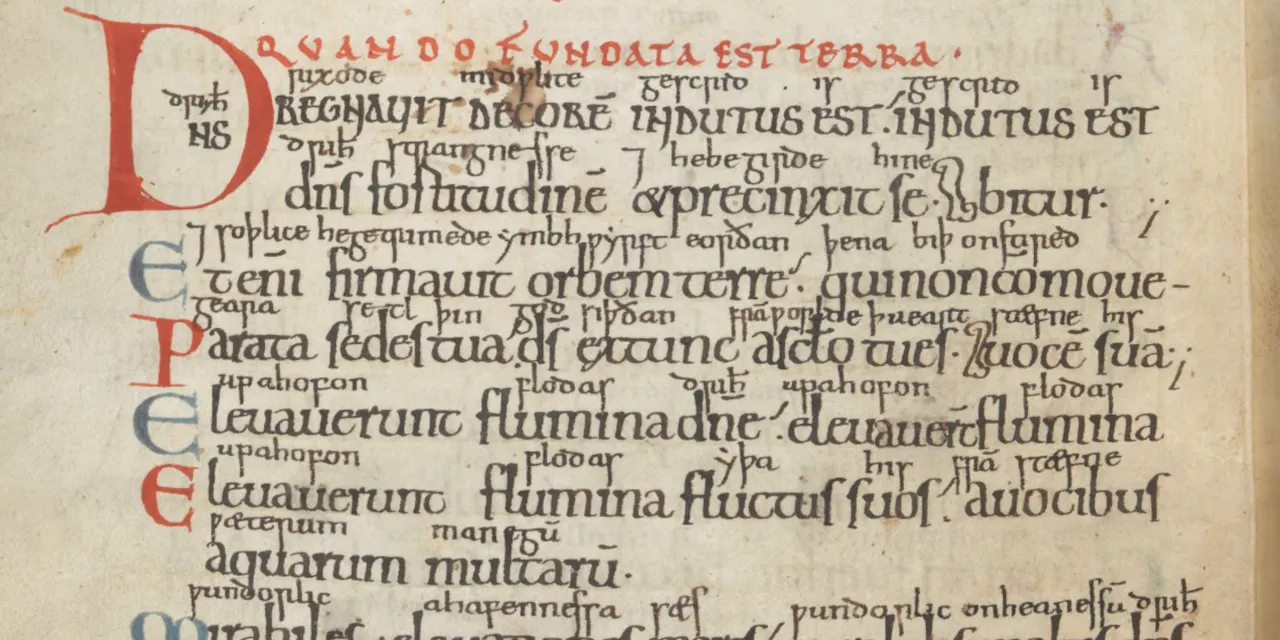If you want to learn Old English with me or with another teacher using my methods, you can do so with the Ancient Language Institute.
Like every language, English has a past. More than many languages, English has changed dramatically over the years: the language as spoken just a thousand years ago would be incomprehensible to us today.
And it is a pity, because this Old English language has a rich and beautiful literature: from heroic poems like Beowulf, to elegiac poems like The Wanderer or The Seafarer, to historical narratives such as The Anglo-Saxon Chronicle. Yet for most people these riches will remain inaccessible, except through the distorting lens of translation.
The only solution is to learn to read Old English. That is just what this series proposes to teach you how to do.
This series is for you if you want to:
- Explore the earliest history of the English language.
- Gain access to new poetic forms and literary devices.
- Open a window into the culture and literature of the Middle Ages.
- Learn to read Beowulf in the original (for why you might want to, read this).
- Immerse yourself in the universe that inspired Tolkien’s Middle-Earth.
- Satisfy your curiosity about scientifically informed techniques for learning ancient or historical languages.
Structure and goals
Over the course of 8 weeks, we will meet weekly to read short texts in Old English together, starting with short prose texts and gradually progressing to longer and more complex texts until, by the end, you will have made a start on Beowulf.
Over the first seven weeks we’ll be reading excerpts from the Old English translation of the Gospel of Matthew. No dragon-slaying in this text, but it does have the benefit of being relatively easy prose that you can find good Modern English translations of without difficulty. Because poetry presents additional challenges, we’ll save it for last: the reading for Week 8 will be an excerpt from Beowulf.
Once you’ve handled that, you will be able to read most Old English texts with the aid of a dictionary and a bit of patience.
Teaching Philosophy
The readings will be supplemented with explanations of important historical or grammatical points, but the focus will be on the readings.
The grammar we discuss will be limited to what is necessary: memorization of endings, verb forms, etc. will be kept to an absolute minimum. There’s good research showing that learning these isn’t particularly helpful! Rather, what is important in a nutshell is exposing you to as much of the language as possible (for more on the science behind this, read this).
Instead, our focus will be on learning to recognize the types of grammatical changes that occur and the contexts in which they occur in texts, so that you can resolve difficulties when you encounter them in your own reading.
